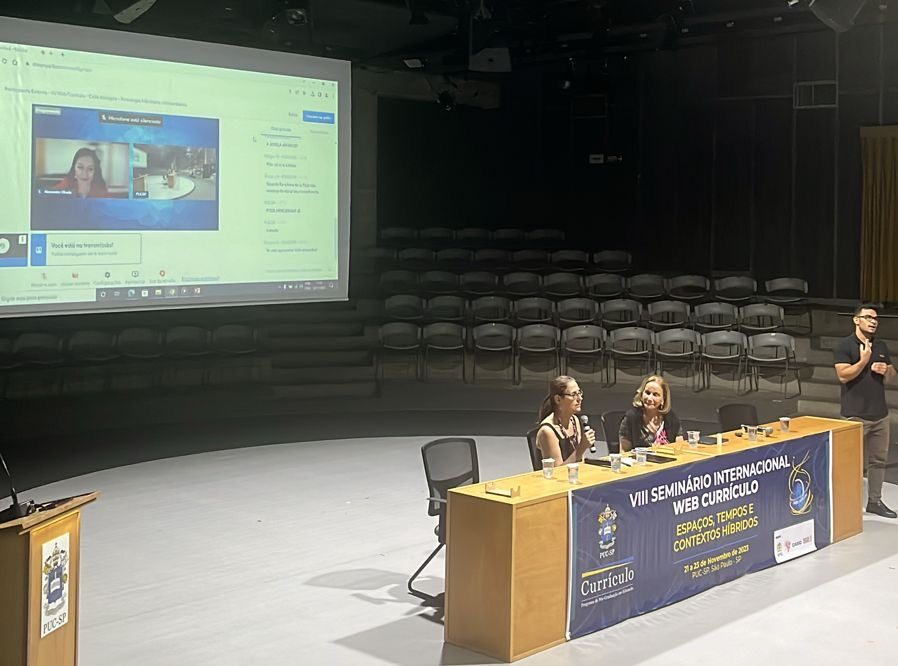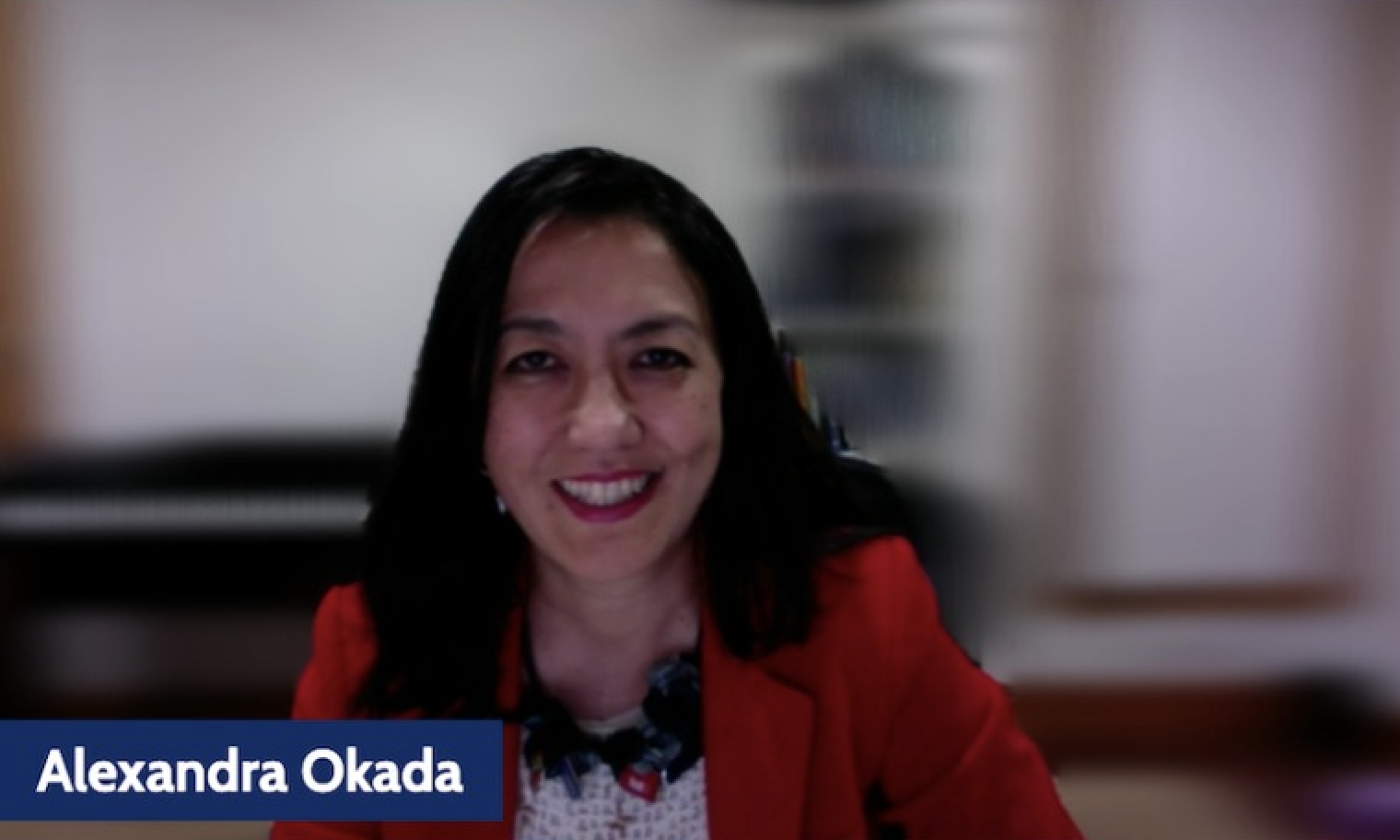News . Events VIII International Seminar on Web Curriculum: Spaces, Times, and Hybrid Contexts

Upcoming Event: Dialogical Cycle – Technology, Hybridism, Open Science, and Open Schooling
Join the The Dialogical Cycle at the VIII International Seminar on Web Curriculum: Spaces, Times, and Hybrid Contexts, organized by the Postgraduate Program in Education: Curriculum at Pontifical Catholic University of São Paulo (PUC-SP).
This panel will explore critical themes such as Technology, Hybridism, Open Science, and Open Schooling, highlighting their intersections in modern education.
Invited Speakers: Alexandra Okada (OU-UK), Miriam Struchiner (UFRJ), Edméa Santos (UFRRJ), and Maria Elizabeth B. Almeida (PUC-SP), with Patrícia Lupion (PUC-PR) serving as the moderator.
Date & Time: November 23rd, 15:50 – 17:20
Location: TUCARENA, PUC-SP

Exploring the Dialogical Cycle in Education: Technology, Hybridism, Open Science, and Open Schooling
By Dr Ale Okada
As we dive into the Dialogical Cycle, we embark on an interactive and collaborative process that encourages deep reflection and discussion, facilitating a space where both learners and educators engage in collective understanding. This cycle isn’t just about sharing knowledge—it’s about creating meaningful dialogue that promotes growth and collaboration within educational settings. Through this ongoing exchange, we aim to build learning environments where all voices are heard, fostering a more dynamic and participatory approach to education.
At the core of this dialogical process is Technology, which plays a transformative role, especially in the context of Open Schooling. The introduction of digital tools is reshaping and being reshaped by pedagogy, giving educators the resources to reimagine how they teach and how students interact with learning materials. As we integrate these artefacts, we enable richer, more authentic interactions that mirror real-life challenges, making learning more relevant to the world students live in. Technology isn’t just an add-on—it’s a gateway to expanding the boundaries of traditional education.
Hybridism is a key element in this evolution. It represents the blending of traditional face-to-face learning with digital platforms, creating a flexible and adaptive environment. By combining these different modes of education, we provide learners with the ability to choose pathways that suit their individual needs and preferences. This hybrid approach accommodates diverse teaching styles and promotes inclusivity, ensuring that students from various backgrounds can thrive. The shift from purely in-person to hybrid learning opens up new opportunities for collaboration and engagement, no matter where students are located.
In parallel, the practice of Open Science is gaining traction within both research and education. Open Science is about more than sharing data—it’s about fostering transparency, inclusivity, and collaboration about how to produce science. By making knowledge and forms to build knowledge accessible to all, we empower students and educators to actively participate in scientific inquiry. Students, in particular, become agents of change, contributing to the pursuit of well-being and sustainability. This democratization of science allows students to not only consume knowledge but to actively shape it, reinforcing their roles as agents of change to a sustainable future.
Open Schooling ties all these concepts together. This inclusive educational model brings students, teachers, and communities together to solve real-world problems. The flexibility of Open Schooling allows learning to happen beyond the classroom, where students tackle challenges related to climate change, health, and social justice, among others. Through this model, education becomes a powerful tool for innovation and societal transformation.
By reflecting on the Dialogical Cycle, Technology, Hybridism, Open Science, and Open Schooling, we are paving the way for a new generation of learners who are not only consumers of knowledge but also active participants in creating solutions for a better world. This holistic approach prepares students to engage with and address the complex challenges of today and tomorrow.